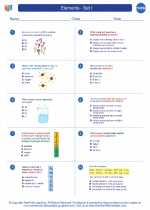Response to Stimuli
Response to stimuli is a fundamental concept in biology that refers to the way an organism reacts to environmental changes or internal signals. In the context of living organisms, stimuli can be physical, chemical, or biological factors that evoke a response from the organism. This concept is essential for understanding how living organisms adapt and survive in their environments.
Types of Responses to Stimuli
There are different types of responses to stimuli, including:
- Chemical Responses: These involve the release of specific chemicals in response to a stimulus. For example, the release of hormones in animals in response to stress.
- Physical Responses: These involve changes in the physical structure or movement of an organism in response to a stimulus. For example, plants bending towards light.
- Behavioral Responses: These involve changes in an organism's behavior in response to a stimulus. For example, animals seeking shelter during a storm.
Examples of Response to Stimuli
Some examples of response to stimuli in living organisms include:
- Plants growing towards a light source (phototropism)
- Animals shivering in response to cold temperatures
- Pupils of the eye dilating in response to low light levels
- Release of adrenaline in response to a perceived threat (fight or flight response)
- Opening and closing of stomata in plant leaves in response to changes in humidity
Study Guide for Understanding Response to Stimuli
To understand the concept of response to stimuli, it's important to grasp the following key points:
- Identify different types of stimuli that can evoke a response in living organisms.
- Understand the mechanisms by which organisms detect and process stimuli.
- Explore the specific responses exhibited by different organisms in reaction to various stimuli.
- Examine the significance of response to stimuli in the survival and adaptation of living organisms.
By mastering the concept of response to stimuli, one can gain a deeper understanding of how living organisms interact with their environment and how they have evolved to respond to various challenges and opportunities.
.◂Chemistry Worksheets and Study Guides High School. Elements - Set I

 Worksheet/Answer key
Worksheet/Answer key
 Worksheet/Answer key
Worksheet/Answer key
